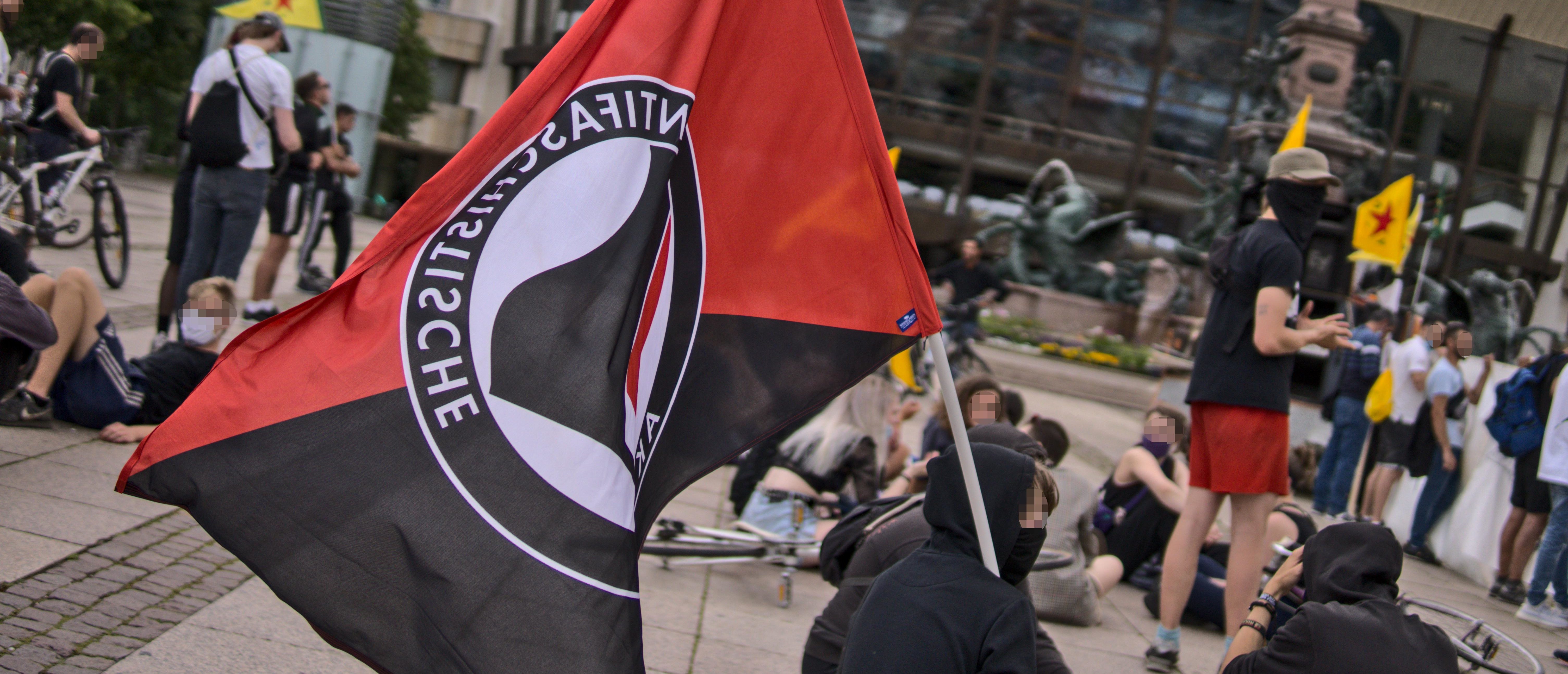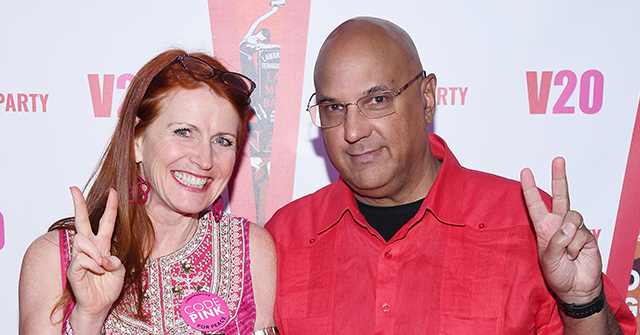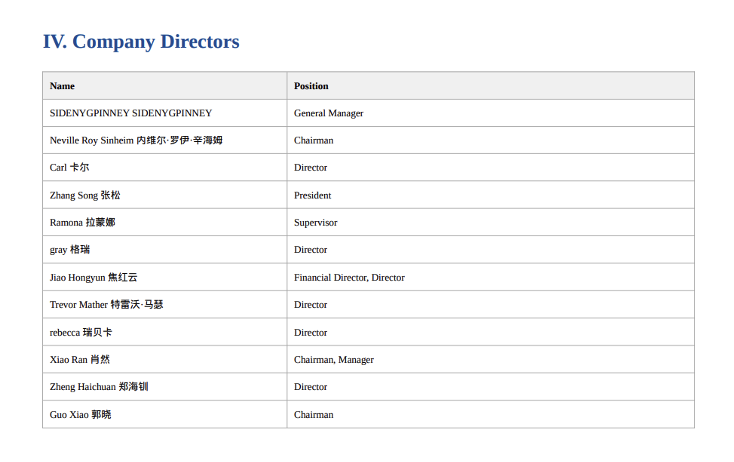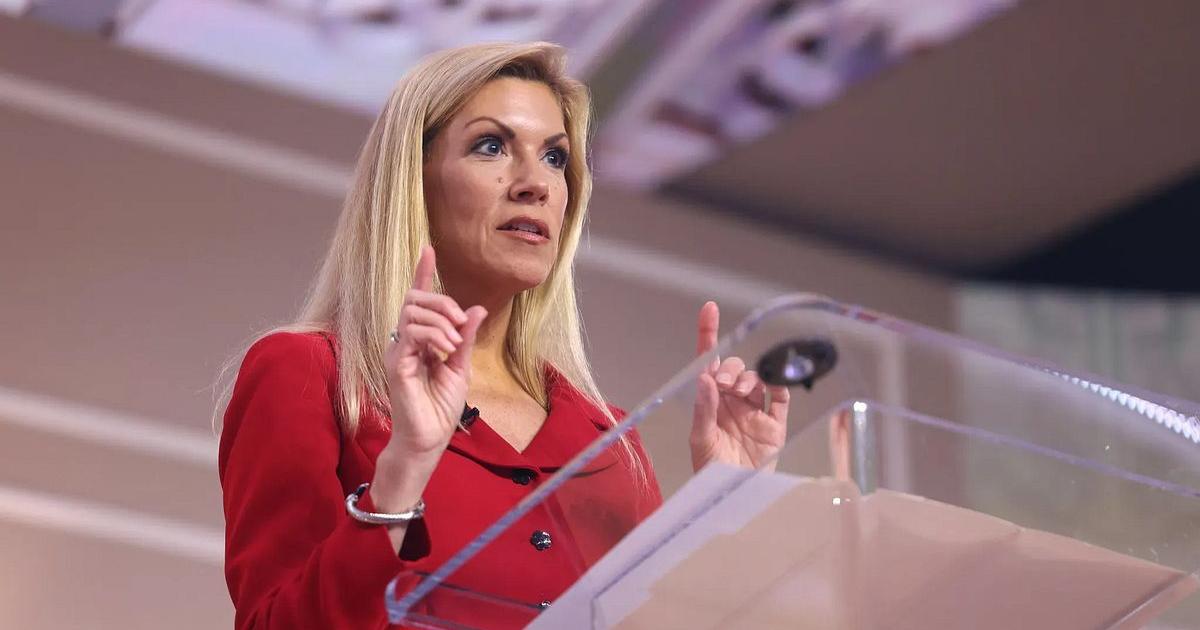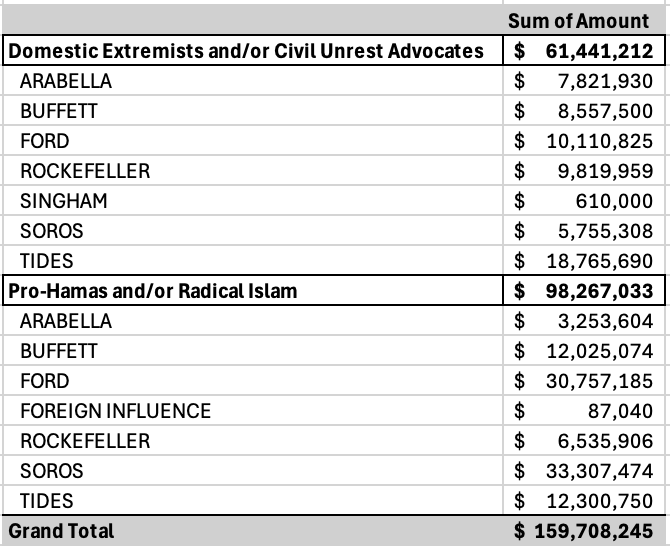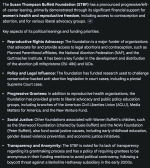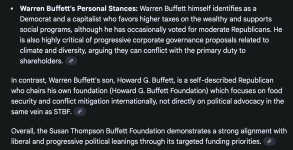And the money is starting to dry up even without RICO charges.
The FINANCIAL TIMES reports below, that the large organizations are holding firm, bucking the administration, but smaller organizations may be facing shortages of funding, staff losses, etc.
Joe Miller in Washington
Donald Trump has made no secret of his plan to go after George Soros. Last month he escalated his rhetoric against the billionaire philanthropist, signing a memo that encouraged the US justice department, the Treasury and the Internal Revenue Service to investigate funders of “domestic terrorism”, and naming Soros as a potential target.
His administration has also suggested it could revoke the tax exemption enjoyed by non-profit groups that administer gender-affirming care to children or assist “illegal immigration”.
Soros’s Open Society Foundations, now run by his son Alex, sits on $25bn in assets and funds hundreds of non-governmental organisations in the US and around the world. It strongly refutes all allegations of supporting violence or illegality and has vowed to fight “politically motivated attacks on civil society”.
But the White House’s threats are having a chilling effect on the hundreds of thousands of smaller charities and organisations that receive funding from the likes of OSF but lack the resources to take on the Trump administration on their own, several groups told the Financial Times.
“We should all be disturbed that the executive branch has weaponised its power against the charitable non-profit sector,” said Akilah Watkins, president of Independent Sector, which represents a range of non-profits.
“There’s downstream effect. If you are a small community organisation that doesn’t align with the priorities of this administration, you don’t have the high-powered lawyers to defend yourself.”
The groups under threat run the gamut from human rights and pro-democracy campaigners, criminal justice reform advocates, media outlets and providers of public health solutions to marginalised communities.
A volunteer fills bags with groceries in Los Angeles. Non-profits in the US are suffering from an exodus of staff © Patrick T Fallon/AFP/Getty Images
Some have lost staff who quit out of fear of being targeted, or are having trouble recruiting more personnel. Others have rapidly removed references to certain progressive causes from their websites.
“There’s enormous fear right now,” said Sarah Saadian, a senior vice-president at the National Council of Nonprofits. “We’re definitely hearing from non-profits who are really concerned, who are making changes to what they’re saying publicly.”
The administration’s persistent attacks on the sector — which Trump last year claimed was full of “thugs and sleazebags” — have coincided with an increase in violent threats, according to one large philanthropic group.
“Many of our grantees, as well as us as foundations have been having online threats and so forth and we’ve provided security services,” said the group’s leader.
OSF and other large grant-making organisations have been calling their grantees one-by-one in recent weeks, to reassure them of their continued financial, legal and logistical support.
“We encouraged them to stay the course and to know where to find us,” said John Palfrey, president of the MacArthur Foundation. “You’ll see that we’re spending a great deal more money, not less money.”
Some of the smaller charities are more in need of financial support than ever after funding from the US government was cut off because of their support of causes such as diversity and inclusion, climate change and foreign aid.
Watkins said: “With the retrenchment of federal dollars going into the . . . sector, a lot of non-profits are over-reliant now on private foundations. This is almost like a double blow.”
Non-profits in the US are suffering from an exodus of staff. Data compiled by The Chronicle of Philanthropy suggests at least 22,000 jobs were lost in the sector in the first six months of the year, in part because of a funding squeeze.
Such groups are also very vulnerable to changes in tax law. “OSF will survive having its tax-exempt status taken, but many NGOs won’t,” a person close to OSF and Soros said.
In recent weeks, the White House has sought to expand the definition of terrorism, widening the legal strategies at its disposal, and further threatening the public activities of some smaller groups.
Deputy attorney-general Todd Blanche suggested a small group of protesters who shouted at Trump during his recent visit to a Washington restaurant could be part of an organised group seeking to “inflict harm and terror and damage” to the US, and claimed they could face racketeering charges usually reserved for organised crime.
Protesters outside a restaurant in Washington where Donald Trump and members of his cabinet dined last month © Win McNamee/Getty Images
In the long run, large foundations are confident of beating back the Trump administration’s assault, especially as the sector has thus far been largely united in its response to the White House’s threats.
The leader of the large philanthropic organisation said: “I would urge you to compare the way that foundations have reacted to this compared to universities, or law firms, where they have been picked off one by one. Many have bent a knee in one way or another . . . foundations are not doing that.”
. . . But government investigations are still a “huge energy suck”, one person familiar with OSF’s structures said, forcing them to divert resources from charitable causes to fighting the administration. . .


